Water plays a crucial role in the preparation of baby formula, particularly when choosing the right type of water to mix with it. Parents sometimes find themselves weighing the options between purified and distilled water for their baby’s formula. Understanding the differences between the two, as well as the pros and cons of each, can help you make an informed decision that ensures your baby’s health and well-being. Moreover, taking into account factors such as the quality of your local tap or bottled water, your baby’s specific needs, and expert recommendations can go a long way in alleviating concerns about providing optimal nourishment for your little one.
In this blog, we delve deep into the differences between purified and distilled water, exploring the purification processes involved, benefits, and drawbacks. Additionally, we’ll examine vital factors to consider when making a decision, such as your baby’s health, sensitivity to impurities, and the quality of the tap or bottled water you use. We’ll also discuss recommendations from healthcare experts, including the American Academy of Pediatrics (AAP) and the World Health Organization (WHO), and guidelines on safe handling and storage practices for purified or distilled water. By the end of this blog, you’ll have gained valuable insights and knowledge to help you make the best choice for your baby’s formula needs.

Purified Water for Baby Formula: Is it a Safe Choice?
Purified water is water that has been processed to remove impurities and contaminants. This type of water can come from any source, including tap water, groundwater, or surface water, and is treated using various methods to meet specific quality standards. It can be a safe choice for mixing infant formula.
Purification Processes
There are several methods used to purify water, including:
- Reverse osmosis (RO): This process involves forcing water through a semipermeable membrane, which filters out contaminants and impurities, such as bacteria, viruses, and heavy metals.
- Activated carbon filtration: This method uses activated carbon to remove contaminants by adsorbing them onto the carbon’s surface.
- Ultraviolet (UV) disinfection: UV light kills microorganisms, such as bacteria and viruses, by destroying their DNA.
- Deionization: This process involves the removal of ions, such as calcium and magnesium, from the water using ion-exchange resins.
Benefits
- Purified water is generally contaminant-free, making it safer for consumption and use in various applications.
- The purification processes can help improve the taste and odor of water by removing impurities.
- Using purified water for powdered formula or liquid concentrate formula can help reduce the risk of exposure to contaminants and provide a safer option for your baby.
Drawbacks
- Purified water can be more expensive than tap water due to the cost of the purification processes.
- Some purification methods may not remove all contaminants, and additional treatment may be necessary.
- Purified water may still contain fluoride, which can concern babies. If you are using fluoridated water, consult your pediatrician about the appropriate fluoride intake for your baby.

Distilled Water for Baby Formula: Pros and Cons
Distilled water is a type of purified water that has undergone a specific process called distillation. This process involves boiling the water and collecting the steam, which is then condensed into water. By doing this, impurities and contaminants are left behind, resulting in pure water.
Purification Process
Distillation: Water is boiled, and the steam is collected and condensed into liquid form. This process leaves behind contaminants and impurities, resulting in distilled water.
Benefits
- Distilled water is considered one of the purest forms of water, as the distillation process effectively removes most contaminants.
- It is suitable for use in sensitive applications, such as laboratory experiments, where impurities may affect the results.
Drawbacks
- Distilled water can be more expensive than other types of purified water due to the cost of the distillation process.
- The lack of minerals in distilled water may affect its taste, making it taste flat or bland.
- Distilled water may not be ideal for regular consumption, as it lacks essential minerals naturally present in other types of water.

Factors to Consider: Making an Informed Decision
When choosing between purified and distilled water for baby formula, several factors should be considered to ensure the best option for your baby’s health and well-being.
Baby’s Health
- Sensitivity to impurities: Some babies may be allergic to certain impurities found in tap water, such as chlorine or heavy metals. In such cases, using distilled or purified water for baby formula can help reduce the risk of adverse reactions.
- Mineral intake: While distilled water is very pure, it lacks essential minerals that are naturally present in other types of water. Babies need these minerals for proper growth and development, so it’s important to ensure adequate mineral intake from other sources if you use distilled water.
- Fluoride intake: Using low fluoride bottled water or distilled or purified water can help control your baby’s fluoride intake. Regular bottled drinking water may contain varying levels of fluoride, and using water with too much fluoride can lead to dental fluorosis in young children. Consult with your pediatrician about the appropriate fluoride intake for your baby.
Water Source Quality
- Tap water quality: The quality of your tap water plays a crucial role in deciding whether purified or distilled water is necessary for baby formula. If tap water is known to be safe and free of contaminants, it may be suitable for a baby formula without further purification. However, if you have concerns about tap water quality, it’s best to use purified or distilled water.
- Bottled water quality: Bottled water can be a convenient option for baby formula, but choosing a reputable brand that meets strict quality standards is important. Look for brands that use purification processes such as reverse osmosis or distillation to ensure the water is contaminant-free.
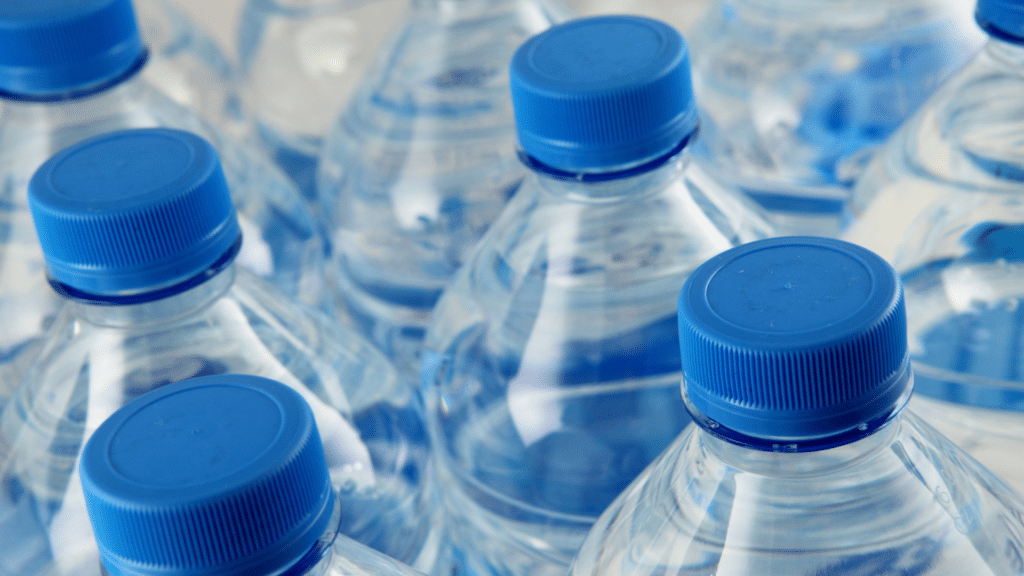
Differences Between Purified and Distilled Water
Purified and distilled water are two common types of water treatment methods. Both methods aim to remove impurities and contaminants from water but differ in their processes and the extent of purification they achieve.
Comparison of the Two Methods of Water Treatment
Purified water, as its name suggests, has undergone treatment processes to eliminate impurities that may include chemicals, microorganisms, and other contaminants. The purification process aims to strip away harmful or undesired substances from the water, raising it to meet specific quality standards devised to ensure safety and hygiene.
The purification process can involve several methods, including filtration, reverse osmosis, ultrafiltration, activated carbon filtering, and distillation, among others. Each method presents unique efficacies and applications. However, the ultimate objective remains the same: to produce clean, safe, and consumable water suitable for different uses. One of the primary applications of purified water is in the preparation of infant formula where safety and purity are of paramount consideration.
To break this down further, distilled water is one type of purified water, manufactured through the distillation process. Distillation essentially includes boiling the water until it transforms into steam, and subsequently collecting this steam. The collected steam is then condensed back into the liquid form in a separate chamber, leaving behind the various contaminants, which do not evaporate along with water.
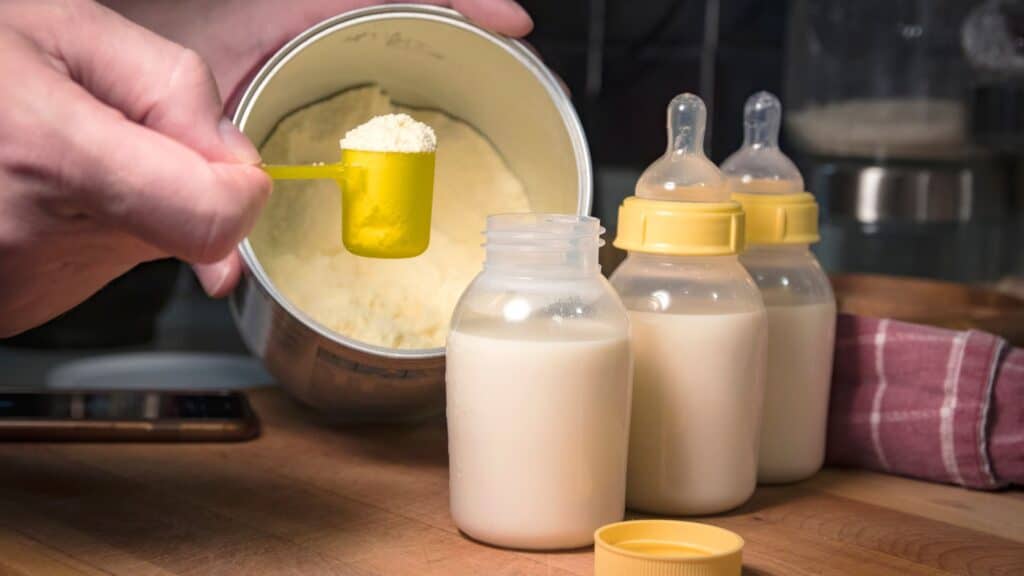
This meticulous process eliminates a broad array of contaminants that could potentially encroach on the water’s purity during boiling, making distilled water highly pure and safe. Since most impurities are efficiently filtered out during distillation, using distilled water for infant formula is generally considered safe. However, since distilled water is devoid of naturally occurring minerals, it is imperative that the infant’s diet is supplemented with these minerals to ensure balanced nutrition.
Contaminants Removed by Each Method
Purified water undergoes specific treatment processes to significantly eliminate many undesirable contaminants. The kind of impurities that purified water can tackle largely depends on the particular purification method used. Here are some commonly removed contaminants:
- Bacteria and viruses: These biological contaminants, which can seriously compromise human health, are very effectively removed in the purification process.
- Heavy metals: This category includes harmful elements like lead, mercury, and arsenic, which are known for causing health issues when consumed over a period of time.
- Chemicals: Substances such as chlorine, different pesticides, and even traces of pharmaceuticals can be efficiently filtered out through purification.
- Particulate matter: This refers to foreign bodies such as sediment, rust, and certain organic materials that may be present in untreated water.
On the other hand, distilled water goes through a meticulous distillation process, effectively removing not only those contaminants addressed by general purification methods, but also additional ones, such as:
- Dissolved salts and minerals: Elements like calcium, magnesium, and sodium are eradicated during distillation.
- Volatile organic compounds (VOCs): These compounds, which can evaporate at room temperature, are also removed.
Considering distilled and purified water for infants comes with a set of advantages and disadvantages:
Purified Water:
Advantages:
- More economical than distilled water.
- Depending on the purification method utilized, it may retain some beneficial minerals.
- Can be conveniently produced at home using a variety of filtration systems.
Disadvantages:
- Depending on the method, it not might entirely eradicate all contaminants.
- Certain purification methods could bring about an off-taste or offensive odor in the water.
Distilled Water:
Advantages:
- Highly pure, effectively eliminating most contaminants.
- The distillation process ensures a consistent quality, regardless of the original source of water.
Disadvantages:
- Tends to be more costly than purified water.
- Has no beneficial minerals which are significant for the growth and development of babies.
- Might carry a flat taste due to the lack of minerals.
When it comes to choosing the best type of water for your baby, factors such as the quality, safety, and purity of the water are of prime importance. Both purified and distilled waters have their distinct merits and drawbacks. It’s important to weigh these and consult with a healthcare provider when determining the best choice for your baby’s nutritional needs.
Factors to Consider When Choosing Water for Babies
- Local Water Quality: The quality of tap water, including fluoridated tap water, can differ considerably based on location. In certain regions, tap water might be safe for consumption; in others, it may have contaminants or elevated mineral levels. In such cases, you must boil tap water to ensure safety. It is crucial to understand the quality of your local water supply when determining the appropriate water source for your baby.
- Availability: Purified and distilled water may only be available in some locations. Depending on where you live, you may have limited access to one or both types of water, such as fluoridated water. Consider the availability of these water sources when making your decision.
- Cost: Purchasing purified or distilled water can be more expensive than tap water. If cost is a concern, consider investing in a water filtration system for your home to ensure your baby has access to safe, clean water without the need for boiling water.
The American Academy of Pediatrics (AAP) suggests using boiled and cooled or bottled water, such as distilled or purified water or nursery water, to prepare formula or provide it to babies under six months of age. If tap water is used, it’s crucial to consult your local authority to ensure the water is safe for consumption and has been tested for lead and other contaminants, including too much fluoride.
For babies over six months old who drink water in addition to breast milk or formula, the AAP recommends using boiled and cooled tap water or filtered water from a home filtration system. However, it’s important to note that not all home filtration systems effectively remove all contaminants, so thorough research and selecting a system certified by a reputable organization, such as the National Sanitation Foundation (NSF), is essential.
Consult with your pediatrician to determine the most suitable water type for your baby’s needs, as they can provide personalized recommendations based on your baby’s age, health, and other factors.
Safety of Purified and Distilled Water for Babies
Both purified and distilled water are different forms of treated water that go through processes to eliminate contaminants and impurities, enhancing their safety for consumption, including by babies. They possess distinct attributes and characteristics, underpinned by the specific treatment processes they undergo.
Purified Water: This is treated water that either originates from groundwater or public water systems and undergoes treatment to remove harmful substances such as bacteria, viruses, algae, fungi, parasites, heavy metals, and chemical pollutants. It is generally considered safe for infants as it is free from these harmful contaminants that could pose health risks to babies’ sensitive and developing immune systems.
Distilled Water: This water form undergoes a more rigorous process called distillation. By heating water to its boiling point and collecting the resultant steam in a separate chamber, the process effectively removes a substantial range of contaminants including bacteria, viruses, and chemicals. However, it also removes essential minerals, such as calcium, magnesium, and sodium.
As a result of distillation, distilled water is free from harmful contaminants, thus, generally considered safe for babies. However, the deprivation of key minerals presents a drawback. These minerals play a vital role in an infant’s growth and development, contributing to bone health, heart and muscle function, nerve signaling, and maintaining a healthy immune system, among other bodily functions.
If parents opt to use distilled water, it’s crucial to ensure that their babies receive these essential minerals from other dietary sources. For instance, these nutrients can be adequately supplied via breast milk, formula, or with the introduction of solid foods, depending on the baby’s age.
Importantly, regardless of whether purified or distilled water is used, it’s advisable to consult with a pediatric healthcare provider. Though both waters have their respective pros and cons, the potential impacts on the health of the baby should be adequately discussed with and evaluated by a healthcare professional. This will ensure a comprehensive understanding of your baby’s nutritional needs and the best water to use, maintaining the holistic well-being of your infant.
Recommendations from Healthcare Experts: What the Professionals Say
When choosing the best water for baby formula, pediatricians and healthcare professionals have some general guidelines and recommendations to ensure the health and safety of your baby. These opinions are based on scientific research, professional experience, and an understanding the potential risks and benefits associated with different types of water.
American Academy of Pediatrics (AAP)
The American Academy of Pediatrics (AAP) recommends using water that is free of contaminants and has low fluoride levels for baby formula. Excessive fluoride intake during infancy may cause dental fluorosis, a condition that affects the appearance of tooth enamel. The AAP suggests using the following types of water for baby formula:
- Tap water: If tap water is known to be safe and free of contaminants, it can be used for baby formula. Ensuring that the water meets local safety standards and is regularly tested for impurities is essential.
- Bottled water: Bottled water can be used for baby formula, but it’s important to choose a reputable brand that meets strict quality standards. Look for brands that use purification processes such as reverse osmosis or distillation to ensure the water is contaminant-free.
- Nursery water: Some companies produce “nursery water,” specifically designed for baby formula use. This type of water is typically purified and may have added minerals or controlled fluoride levels to meet the AAP’s recommendations.
World Health Organization (WHO)
The World Health Organization (WHO) advises that safe and clean water should be used for preparing baby’s formula. They emphasize the importance of using water free of contaminants and harmful microorganisms, which can harm your baby’s health. The WHO recommends boiling water for one minute and cooling it to the appropriate temperature before you mix baby formula.
Individual Pediatricians
Pediatricians may have their recommendations based on their professional experience, local water quality, and their knowledge of your baby’s specific needs. It’s essential to consult your baby’s pediatrician to discuss your concerns and preferences regarding the best water choice for baby formula. They can provide personalized guidance and recommendations based on your baby’s health and local water quality conditions.
By following the recommendations of healthcare experts and your baby’s pediatrician, you can ensure that you are making the best choice for the water used in your prepared formula to support your baby’s health and well-being.
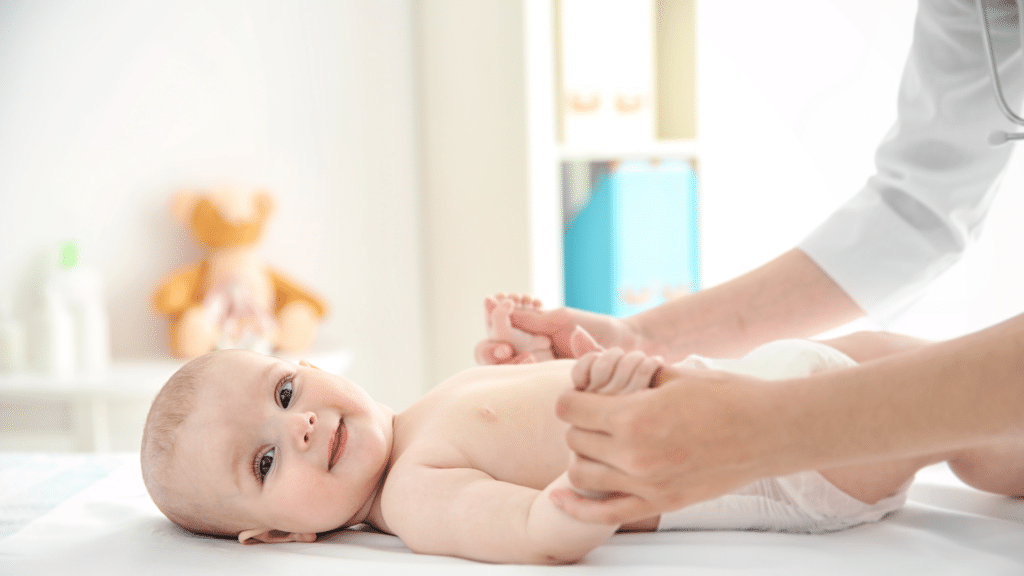
Safe Handling and Storage: Best Practices for Using Purified or Distilled Water
When using purified or distilled water for baby formula preparation, it’s essential to follow safe handling and storage practices to ensure the water remains clean and free of contaminants. Here are some practical tips on how to safely handle, store, and use purified or distilled water for baby formula:
Handling
- Wash your hands: Always wash your hands thoroughly with soap and water before handling purified or distilled water and preparing baby formula. This helps prevent the transfer of germs and contaminants to the water and formula.
- Clean the container: If you’re using a reusable container to store purified or distilled water, ensure it is clean and sanitized before filling it with water. Rinse the container with hot, soapy water, then rinse it thoroughly with clean water to remove any soap residue.
- Avoid touching the inside of the container or cap: When handling purified or distilled water, avoid touching the inside or cap to prevent contamination. Use a clean utensil or pour spout to transfer the water into the baby formula container.
Storage
- Store in a cool, dark place: Keep purified or distilled water in a cool, dark place away from direct sunlight and heat sources. Exposure to heat and light can promote the growth of bacteria and other microorganisms, which could contaminate the water.
- Use a sealed container: Store purified or distilled water in a sealed container to prevent contamination from dust, dirt, and other airborne particles. Make sure the container is airtight and free of any cracks or damage.
- Label the container: Clearly label the container with the type of water (purified or distilled) and the date it was stored. This will help you keep track of the water’s freshness and ensure you’re using the most suitable water for baby formula preparation.
- Discard unused water: If you’ve stored purified or distilled water for an extended period, it’s best to discard any unused water and replace it with fresh water. As a general rule, it’s recommended to use purified or distilled water within two weeks of opening or storing it.
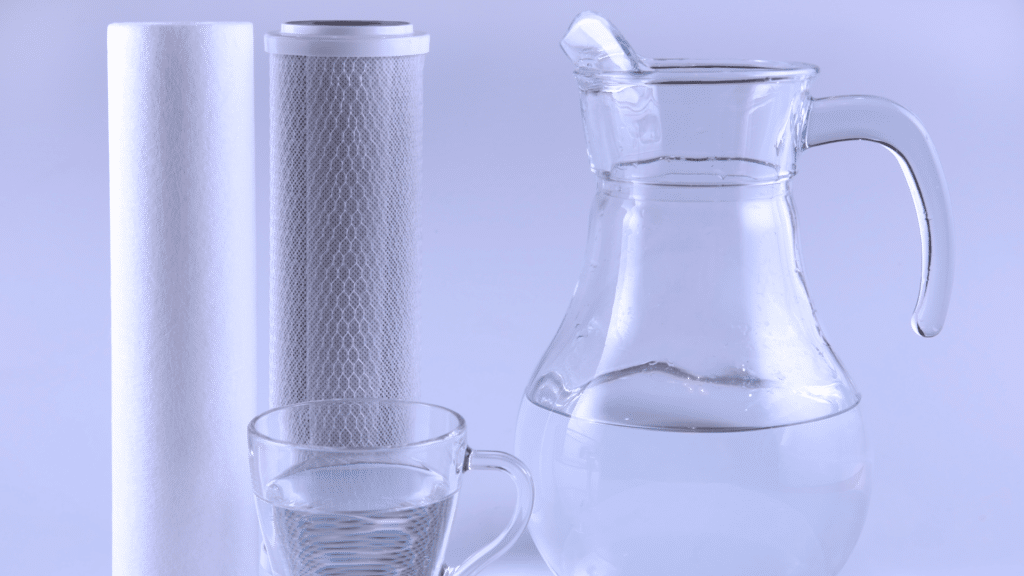
Using Purified or Distilled Water for Baby Formula
- Follow the formula instructions: Always follow the manufacturer’s instructions for preparing baby formula, including the recommended water-to-formula ratio. Using too much or too little water can affect the nutritional balance of the formula.
- Heat the water safely: If you need to warm the water for baby formula, do so using a bottle warmer, a bowl of warm water, or by running the bottle under warm tap water. Avoid using a microwave, which can cause uneven heating and create hot spots that can scald your baby.
- Mix the formula thoroughly: After adding the purified or distilled water to the baby formula, mix infant formula thoroughly to ensure all the formula powder is dissolved and evenly distributed. This helps prevent clumps and ensures your baby receives the proper nutrients.
By following these safe handling and storage practices, you can help ensure that purified or distilled water remains clean and safe for baby formula preparation, promoting your baby’s health and well-being.
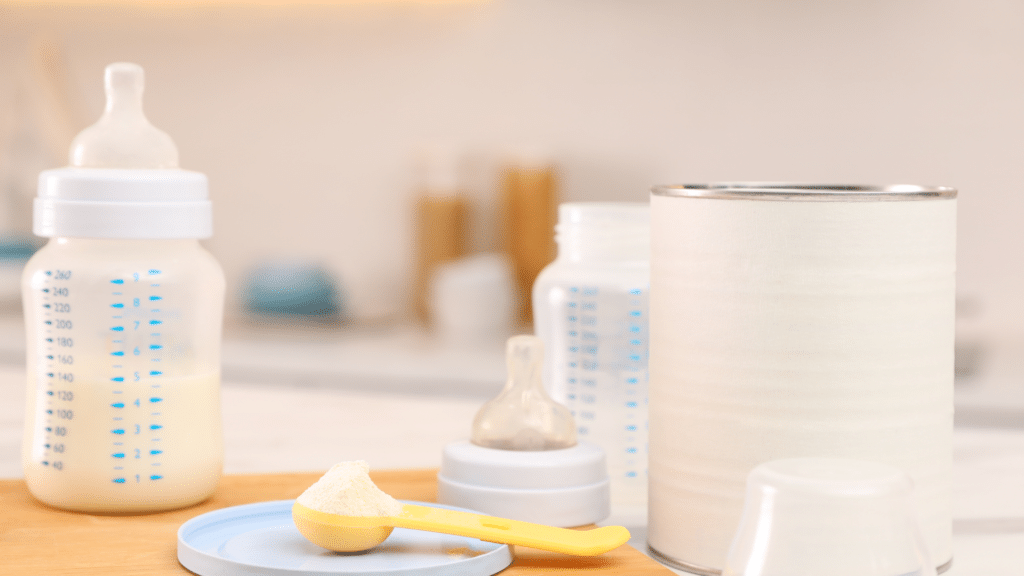
Precautions for Tap Water Usage
- Test your tap water: If you plan to use tap water for your baby, have it tested for contaminants, such as lead, bacteria, and nitrates. This can help you determine if additional filtration or purification is necessary for preparing the baby’s formula.
- Install a water filter: If your tap water contains contaminants, consider installing a certified water filter to remove the specific impurities in your water.
- Run the tap before use: When using tap water, run the tap for a few seconds before collecting the water to flush out any contaminants that may have accumulated in the pipes.
- Avoid using hot tap water: Do not use hot tap water for preparing water for baby formula, as it can contain higher contaminants. Always use cold tap water and heat it separately if needed.
- Consider low-fluoride bottled water: If you are concerned about tap water quality, low-fluoride bottled water can be a safer alternative for preparing your baby’s formula.
By following these practical tips and guidelines, you can ensure that the water you provide for your baby is safe, clean, and suitable for their needs.
Exploring the Use of Natural Spring Water for Babies
Natural spring water is another alternative to consider when choosing the right water for your little ones. Originating from an underground source and naturally filtered by the earth, spring water typically contains essential minerals like calcium, potassium, and magnesium, which are vital for your baby’s growth and development.
While they occur naturally, these minerals must still be balanced to ensure they don’t exceed safe levels for infants. Hence, not all spring water on the market is suitable for babies. Always choose spring water specially designed for infants. These are usually carefully sourced and processed to the highest standards, ensuring their safe mineral composition and absence of contaminants.
Moreover, natural spring water is generally considered crisp and fresh to the taste, which, over time, might make a difference in encouraging your little one to stay hydrated. However, it’s important to remember that even the purest natural source can be affected by environmental factors. Therefore, appropriate treatment, such as UV radiation or micron filtration, is applied to eliminate any potential contaminants, including bacteria or viruses.
There are also eco-friendly advantages to consider. The process of bottling natural spring water requires less filtration and thus less energy compared to purified water, leading to a smaller carbon footprint.
Taking into consideration the freshness, benefits of natural minerals, and the green aspect, spring water could be a suitable choice for your baby. Still, it’s essential to consult with pediatricians or healthcare professionals before making a switch to ensure it aligns with your baby’s health needs and dietary requirements.
While distilled and purified water are safe choices for your baby, exploring the option of natural spring water is valuable for its unique benefits. When it comes to deciding the best for your child, remember safety is paramount, and any decision should prioritize their health needs over anything else.
Conclusion
In conclusion, purified and distilled water can be suitable options for baby formula. Purified water undergoes various processes to remove impurities, while distilled water, one of the purest forms, is obtained through distillation.
Purified water is generally contaminant-free and can have better taste and odor, but it may be more expensive and require additional treatment. Distilled water effectively removes contaminants but lacks essential minerals and may taste flat.
When deciding, consider your baby’s health, sensitivity to impurities, tap or bottled water quality, and pediatrician recommendations. Ensure the chosen water is contaminant-free and has low fluoride levels, as the American Academy of Pediatrics (AAP) advises.
Follow safe handling and storage practices for purified or distilled water, including hand washing, container cleaning, cool and dark storage, and timely discarding unused water.
Consult your baby’s pediatrician and adhere to their recommendations to make the best decision for your baby’s health and well-being. Paying attention to water quality and safe practices can give your baby a secure and healthy start.
Did this article help you? Please let us know by leaving a comment.



